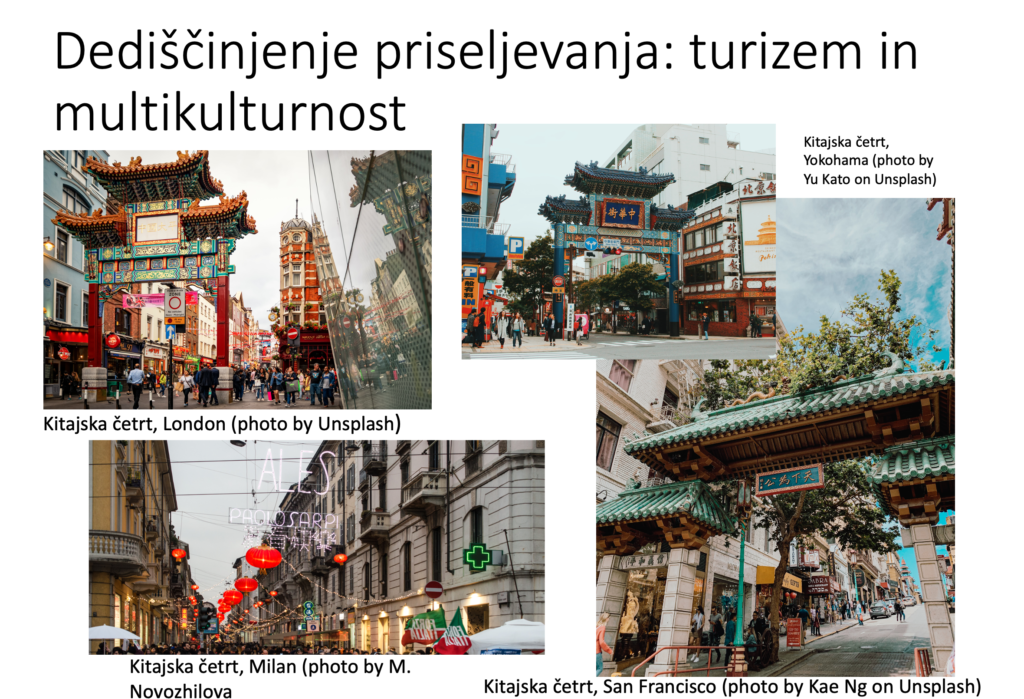Round table: Heritage – between legacy and ideology
On Monday, 28 June 2021, the Historical Association of Slovenia and the Heritage on the Margins programme group organised a roundtable on the issues arising from the different interpretations of heritage in legislation/legislative acts, state administration, public discourse, business and various professional discourses. In the introduction, Špela Ledinek Lozej outlined the expansion and consolidation of the semantic dimension of the world heritage and the derived verb forms heritagization and heritage-making, listed the intersections between heritage & science and pointed out the theoretical limitations of the concept and the possibility of different heritage ontologies. Presentations of marginalised and contested heritages followed. Martina Bofulin presented the heritagizastion of Chinese migrants’ experiences, which often – instead of empowering migrants – serves various local development projects underpinned by nationalism and economic interests. Historian Petra Svoljšak outlined the process of heritagization of the Isonzo Front – from its inclusion in the Italian nationalist discourse during the Julian March, neglect by authorised heritage institutions and intensive collecting practices of the remnants of the Isonzo Front by some private collectors after the Second World War, institutionalisation with the Kobarid Museum in 1990 and the Walks of Peace in the Soča Region Foundation in 2000, to the inclusion of the Walks of Peace in the Tentative List of UNESCO World Heritage. Blaž Vurnik presented the (trans)formations of the memorial in Sveti Urh (near Ljubljana), highlighting the issues of interpretation of the contested heritage, its role in catharsis and reconciliation, and the impact of European Union and dark tourism on the growing interest in the heritage of violence. In the final presentation, Verena Vidrih Perko focused on heritology, the interdisciplinary science of heritage preservation and promotion, and its primary discipline – museology. Unlike the basic sciences, she argued, only heritology and museology ensure the interpretation of heritage. Afterwards, a heated debate developed, moderated by Daša Ličen. While those present agreed on the importance and role of heritage, they disagreed on the possibility of a common heritage and the multivocality of heritage. Of course, we did not get a clear answer about the relationship between science and heritage. However, the discussion showed that researchers are often limited to their own (disciplinary) perspectives. All the more valuable were thus the unfolding possibilities presented in three reflections on the heritage-making of marginal or contested phenomena – migration, wars and violence.

